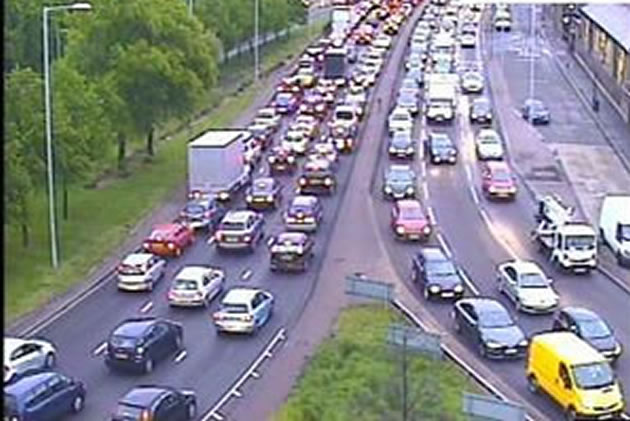Could Mayor's Air Quality Plans Mean a More Polluted Chiswick?
Ultra-Low Emission Zone to be extended to the North and South Circular by 2020

Radical new plans to reduce pollution in London by the Mayor Sadiq Khan, have been announced which would see older vehicles banned from Chiswick.
In what his office describe as the toughest crackdown on the most polluting vehicles by any major city around the world, the proposals would mean that a substantial proportion of the cars currently owned by Londoners would need to be replaced.
The most significant change is the extension of the Ultra-Low Emission Zone (ULEZ) out to the North and South Circular roads for cars by 2020.
However, concerns have been expressed that the plan could actually lead to a deterioration of air quality in Chiswick. It is not clear yet whether the North and South Circular Roads, which include part of Chiswick High Road and Gunnersbury Avenue, would actually be in the low emission zone or just mark the border. If the latter then it has been suggested that traffic on these roads would increase as higher polluting vehicles seek to avoid entering the charge zone. We asked the Mayor's office for more details about the operation of the scheme in the area but they said they were unable to provide them at this time.
The ULEZ would mean a daily charge for any diesel car or large van not Euro 6 compliant (registered from September 1, 2015) or any petrol car or van not Euro 4 compliant (registered from January 1, 2006). Motorcycles and similar vehicles need to be Euro 3 compliant.
Heavy goods vehicles, buses and coaches would need to be Euro 6 compliant. Non-compliant vehicles of this type will be required to pay a daily charge of £100 on a London wide basis.
The current daily charge for non-compliant vehicles with the ULEZ is £12.50 a day for cars/vans/motorcycles and £100 for coaches/HGVs/buses. The ULEZ will operate 24 hours a day, seven days a week
In addition an emissions surcharge will be made in the Congestion Charge Zone of £10 for any vehicle not meeting ULEZ standards.
It is not clear as yet whether the ULEZ would be monitored by number plate recognition at every point of entry or just major entry points. If the latter there are concerns that rat-running would increase in local residential streets. It is not known yet if there will be any discount for residents and their visitors as there is with the Congestion Charge Zone. The survey that has been commissioned by the Mayor as part of the consultation does suggest that this is being considered. The Mayor's office were unable to confirm how the system would operate at this stage.
A consultation is taking place on the Mayor’s Clean Air Action plan with an unusually tight deadline of 29 July for the public to give their views. The Mayor’s office say further consultations will take place but the first stage of the implementation of the plan will begin next year.
The ULEZ will be introduced a year early in Central London in 2019 and then extended to the North and South Circulars in 2020. At the same time a national diesel scrappage scheme will be proposed for the Government to implement. There is no commitment from the Government to fund this scheme.
There is also an acceleration of the time-table that double-decker buses must meet ULEZ standards and ‘clean bus corridors’ will be implemented to tackle the worst pollution hotspots such as Putney High Street by delivering cleaner buses on the dirtiest routes
The Mayor of London, Sadiq Khan, said: “With nearly 10,000 people dying early every year in London due to exposure to air pollution, cleaning up London’s toxic air is now an issue of life and death.
“It is the 60th anniversary of the Clean Air Act of 1956, which was passed following the great London smogs of the 1950s. The legislation made a huge difference to life in London and saved countless lives. British politicians at the time did an amazing thing and responded on the scale that was required. Today we face another pollution public health emergency in London and now it’s our turn to act for the good of Londoners and for future generations to come.”
July 8, 2016